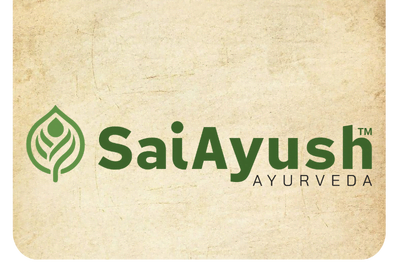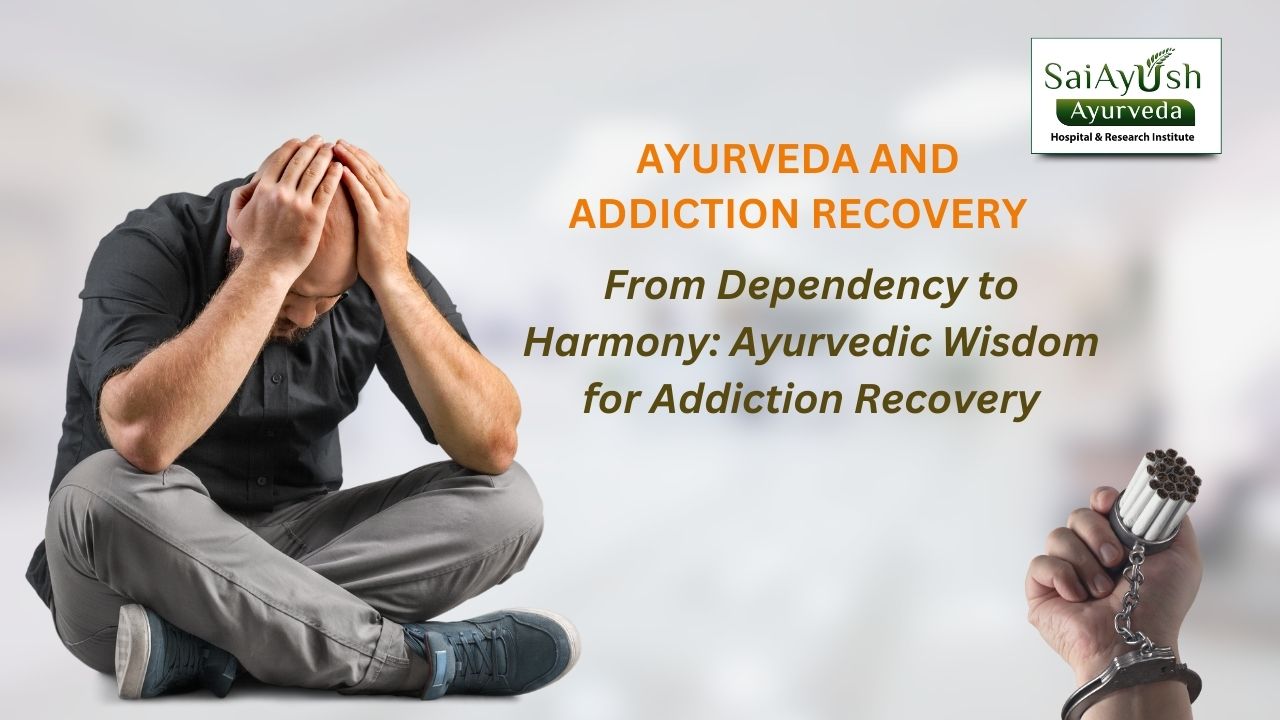Millions of people around the world struggle with the complex and difficult condition of addiction. From alcohol and drugs to gambling and even technology addiction, it encompasses a broad range of substances and behaviors. In this blog, we will explore addiction from an Ayurvedic perspective, examining what addiction is, its signs and symptoms, stages, and withdrawal symptoms. We will also delve into how Ayurveda offers holistic approaches to addiction management and treatment.
Understanding Addiction
Addiction can be defined as a compulsive engagement with a substance or behavior, despite harmful consequences. It often starts with voluntary use but can progress to a point where the individual loses control over their actions. In Ayurveda, addiction is seen as a disturbance in the balance of the doshas, primarily Vata, Pitta, and Kapha. This imbalance affects the mind, body, and spirit, leading to addictive behaviors.
Signs and Symptoms of Addiction:
- Cravings: Individuals often experience intense cravings for the substance or behavior they are addicted to.
- Loss of Control: Addicts find it challenging to control their consumption or engagement, often resulting in excessive use.
- Tolerance: Over time, addicts may build a tolerance, requiring more of the substance or behavior to achieve the desired effect.
- Neglect of Responsibilities: As addiction takes hold, individuals may neglect their responsibilities at work, home, or in relationships.
Stages of Addiction:
- Experimentation: This initial stage involves trying a substance or behavior out of curiosity or peer pressure.
- Regular Use: At this stage, the individual starts using the substance or engaging in the behavior more frequently.
- Risky Use or Dependency: The individual becomes increasingly reliant on the substance or behavior, often at the expense of their physical and mental health.
- Addiction: In this final stage, the person loses control, and the addiction dominates their life, often leading to severe consequences.
Withdrawal Symptoms
Withdrawal symptoms can be excruciating and vary depending on the substance or behavior. Common withdrawal symptoms include anxiety, depression, nausea, insomnia, irritability, and physical discomfort.
Ayurvedic Perspective on Addiction
Ayurveda views addiction as a result of imbalances in the doshas, which affect an individual’s mental, emotional, and physical state. Here are some Ayurvedic insights into addiction:
Imbalanced Doshas:
Each dosha imbalance is associated with specific addictive tendencies. For instance, Vata imbalance can lead to alcohol or drug addiction, while Pitta imbalance may manifest as anger or work addiction.
Aggravated Tamas:
In Ayurveda, Tamas represents darkness, ignorance, and lethargy. An increase in Tamas can lead to addictive behaviors, as the individual seeks an escape from their current state of mind.
Ama Accumulation:
The buildup of toxins or ama in the body is often linked to addiction. Ayurveda recommends detoxification therapies to eliminate ama and restore balance.
Ayurvedic Treatment and Management:
- Dosha Balancing: Ayurvedic treatments aim to balance the doshas through diet, lifestyle modifications, and herbal remedies. A personalized approach is essential, as each individual’s constitution is unique.
- Meditation and Yoga: Mindfulness practices such as meditation and yoga help individuals reconnect with themselves, reducing cravings and promoting emotional stability.
- Detoxification: Panchakarma, a set of cleansing procedures, is effective in eliminating ama and toxins from the body.
- Counseling and Support: Ayurveda recognizes the importance of addressing the psychological aspects of addiction. Counseling, support groups, and therapies can help individuals cope with cravings and emotional issues.
- Herbal Remedies: Ayurvedic herbs like Ashwagandha, Brahmi, and Shatavari may be used to support mental and emotional well-being during addiction recovery.
Conclusion
Addiction is a complex condition that affects the mind, body, and spirit. Ayurveda offers a holistic approach to addiction management and treatment, focusing on balancing the doshas, detoxification, and promoting overall well-being. It’s crucial to remember that overcoming addiction is a journey that requires dedication, support, and personalized care. If you or someone you know is struggling with addiction, consult with a qualified Ayurvedic practitioner to explore a holistic path to recovery.
Discover the healing power of Ayurveda with our latest article at Sai Ayush Ayurveda Hospitals! Dive into the age-old wisdom that can rejuvenate your body and mind. Click here to read more:



0 Comments